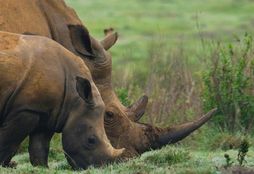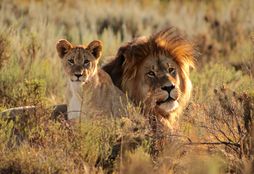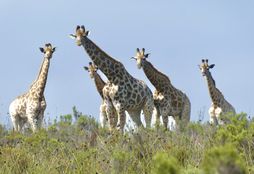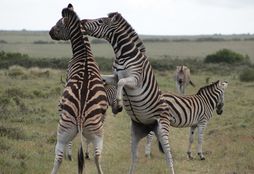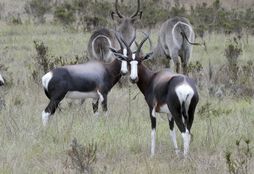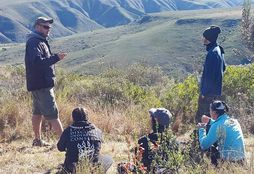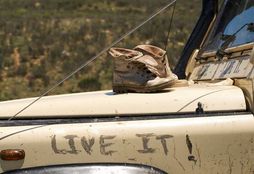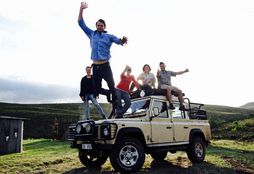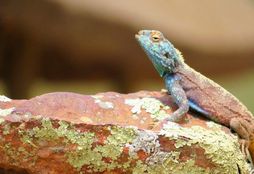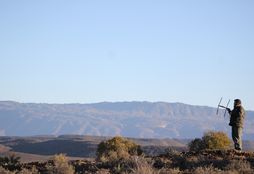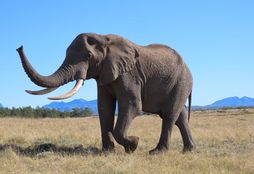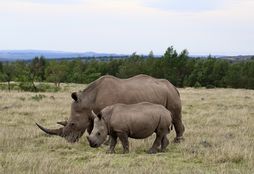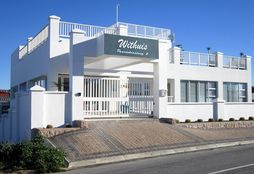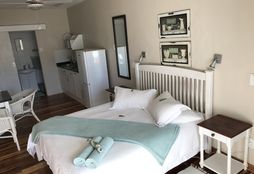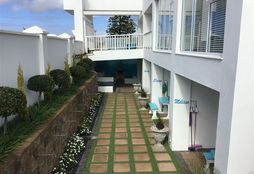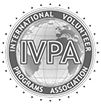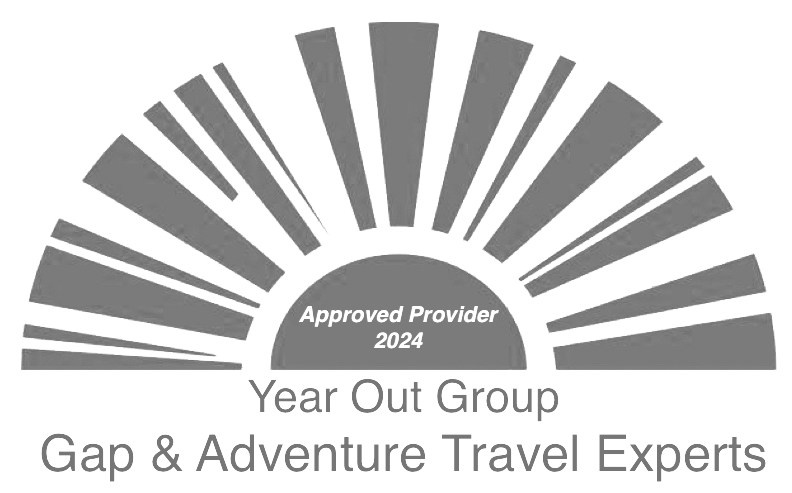Highlights
- The perfect combination: work in one of the most beautiful Big 5 reserves and live at one of the most spectacular beaches in South Africa
- Make a difference and get involved in real-world conservation initiatives
- Contribute to meaningful research with particular focus on the White Rhino
- Learn from true wildlife experts who guide you each day
- Make new friends from all over the world
- Experience amazing tours and adventures in and around the Garden Route
Project information
The Rhino Research Project is a unique volunteer opportunity that gives wildlife enthusiasts of all ages and backgrounds an opportunity to get involved in the conservation and sustainability of African wildlife and ecosystems. Volunteers are critical in the continuation of the project’s research and conservation efforts.
The project focuses on observational, behavioural research of free-roaming wildlife that will support the natural biodiversity and sustainability of the ecosystems. Research is designed to be beneficial to other researchers, wildlife management, and fellow conservationists. Its team believes in collaboration and to protect wildlife.
Volunteers will spend five days per week assisting in various capacities of wildlife conservation.
Volunteers get time off during the evenings and on weekends, which gives you the opportunity to explore the Garden Route and take part in various cultural and tourist activities. Based in the beautiful coastal town of Mossel Bay, South Africa, volunteers have a unique experience to work hands-on in a free roaming wildlife reserve while living within walking distance of the blue flag beaches.
Your role
You are actively working Monday to Friday from approximately 8am - 4pm, however, these times may vary based on the animals, weather, and tasks of the day. One day per week is allocated for data entry and management. Additional data management is available for volunteers interested in assisting “after hours”.
Volunteers will also be trained in some “bush basics” such as survival, tracking, reading animal behaviour, and ethical approach methods. The team takes great pride in only ethical operations and finds it important to provide the information and understanding with those involved.
Volunteers are provided with an orientation meeting upon arrival. Topics covered include:
- Staff introduction
- Safety in South Africa
- Project introduction (goals, purpose, methods, role etc.)
- Reserve safety & procedures
- Accommodation
When participating in the Rhino Research Project you will be involved in various conservation initiatives and projects within the game reserve. Projects and initiatives are based on previously founded ecological and cognitive knowledge to improve the welfare of current and future wildlife in Southern Africa. You will assist in all aspects of the reserve’s current needs regarding projects and daily operations.
You assist with data collection and management, complete field observations and collect data for the various projects. You assist in managing trail cameras by maintaining active batteries and keeping the memory cards from filling to capacity. Data management includes entering the field observations on to the servers so that the information we collect can be analysed and utilized for various purposes. Volunteers are also responsible for analysing trail camera captures (photographs) for their subjects and documenting their behaviours.
Currently, work is being done with white rhino population ecology, social behaviour and utilisation of Fynbos habitats as well as wildlife and road fatalities (done in partnership with the Endangered Wildlife Trust (EWT)), additional short projects are also implemented throughout the year.
It is important to note that this description serves as an example only. The daily tasks and challenges depend on the volunteer, the time of year and the work that needs to be done. The final job description can therefore vary substantially from the above.
Accommodation
Accommodation is a shared 2-bedroom apartment with a kitchen, TV (volunteers are able to plug in a hard drive via USB to the TV) and bathroom. Single rooms are available at an upgrade fee.
Bath towels are included (not to be used at the beach, please bring your own beach towel).
The apartment’s kitchen is fully equipped and offers an oven, stove, microwave, toaster, fridge, freezer, kettle, cooking and serving dishes/utensils.
The apartments are within a hotel complex and only one minute away from the beachfront.
Apartments share the following facilities:
- Braai facilities (BBQ) in all rooms
- Restaurant (à la carte) and Bar (walking distance)
- WiFi
- Housekeeping
Breakfast is provided 7 days a week and lunch, which will mostly be packed, will be provided 5 days per week during field days. All dinners and the lunches on the weekends are self-catering.

